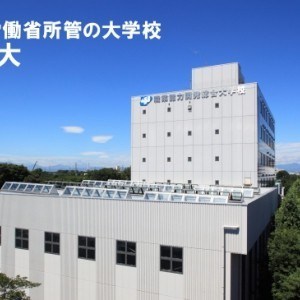The Bachelor of Engineering (Electrical and Electronic Engineering) at the University of the Sunshine Coast is a comprehensive program designed to prepare students for a dynamic career in the rapidly evolving fields of electrical and electronic systems. This degree offers a solid foundation in the principles of electrical and electronic engineering, combining theoretical knowledge with practical application. Students will gain expertise in areas such as electrical circuit design, control systems, signal processing, telecommunications, embedded systems, and power engineering. The curriculum emphasizes hands-on experience through laboratory work, industry projects, and internships, ensuring graduates are work-ready and capable of tackling real-world engineering challenges. The program also incorporates emerging technologies including renewable energy systems, intelligent automation, and digital communication, reflecting industry trends and future demands. With state-of-the-art laboratories and close connections to industry partners, students have access to a vibrant learning environment that fosters innovation and problem-solving skills. Graduates of this program are well-equipped for employment in a variety of sectors, including energy, manufacturing, telecommunications, automation, and research and development. They are prepared to work as electrical engineers, electronic engineers, automation specialists, or project managers, among other roles. The program supports professional accreditation, aligning with Engineers Australia standards, which enables graduates to pursue Chartered Engineer status and other recognized professional designations. International students and domestic students alike benefit from USC’s commitment to quality education, flexible learning options, and strong industry links. Whether you are interested in designing sustainable energy solutions, developing cutting-edge communication technologies, or deploying intelligent electronic systems, USC’s Bachelor of Engineering (Electrical and Electronic Engineering) provides the skills, knowledge, and experience needed for a successful engineering career.
The Bachelor of Engineering (Electrical and Electronic Engineering) at the University of the Sunshine Coast provides students with a comprehensive and in-depth understanding of electrical and electronic systems, preparing them for diverse careers in the engineering industry. The program covers fundamental principles such as circuit analysis, digital systems, and electromagnetism, alongside advanced topics including control systems, power electronics, telecommunications, signal processing, and embedded systems. Students will develop essential skills in designing, analyzing, and troubleshooting complex electrical and electronic circuits, ensuring they are well-equipped to meet industry challenges.
Throughout the course, students engage in practical laboratories, industry placements, and project-based learning, enabling them to apply theoretical knowledge to real-world problems. The curriculum emphasizes innovation and sustainability, encouraging students to develop environmentally responsible engineering solutions. The program also fosters teamwork, communication skills, and ethical practices vital for professional engineers.
Elective courses allow students to specialize in areas such as renewable energy, automation, or telecommunications, aligning their education with current industry trends and demands. The program's accreditation by Engineers Australia ensures it meets national and international engineering standards, facilitating graduates’ employment opportunities both domestically and abroad.
Graduates of the Bachelor of Engineering (Electrical and Electronic Engineering) are prepared for a wide range of careers, including electrical design, systems engineering, telecommunications, renewable energy, robotics, and automation. Many students also pursue postgraduate studies or research opportunities. With a robust focus on technical expertise, innovation, and sustainability, this program aims to develop competent, forward-thinking engineers ready to contribute to technological advancements and societal progress in the electrical and electronic sectors.
Year 12 or equivalent. Requirements: English (Units 4 and 3 ( C), Maths Methods (Units 3 and 4, C). Year 1-2 Specialist Maths, and Physics or Chemistry are recommended.
The Bachelor of Engineering (Electrical Engineering and Electronic) program at the University of the Sunshine Coast offers a variety of financing options to support students throughout their studies. Domestic students can access Commonwealth Supported Places (CSP), which significantly reduces the cost of tuition fees, with students paying only a student contribution amount set annually by the Australian Government. Additionally, students may be eligible for government loans such as the Australia’s Higher Education Loan Program (HELP), including the HECS-HELP scheme, which allows them to defer tuition fees and pay them back through the tax system once they reach a certain income threshold. International students are required to pay full tuition fees, which vary depending on the duration of the program and the specific Overseas Student Health Cover (OSHC) requirements.
The university also offers a range of scholarship opportunities designed to assist students financially based on academic merit, equity, and special talents. These scholarships can provide partial fee waivers, grants, or living allowances, helping ease financial burdens. Some scholarships are renewable each year contingent on maintaining certain academic standards. Furthermore, students are encouraged to explore external funding sources such as government grants, private sponsorships, or industry-sponsored scholarships, which are often available for engineering students engaged in research projects or specialized disciplines.
Students can also consider part-time work opportunities on or near campus to support their living costs and tuition fees. The university's career development services provide assistance in securing part-time employment, internships, and co-op placements that align with their studies and career goals. Financial aid offices at the university provide guidance and support for students navigating application processes for government loans and scholarships, ensuring they can access the necessary resources to sustain their education. Overall, the university is committed to making engineering education accessible by providing comprehensive financial assistance options and advising services to help students finance their studies effectively.
The Bachelor of Engineering (Electrical and Electronic) at the University of the Sunshine Coast is a comprehensive program designed to equip students with the knowledge and skills necessary to excel in the rapidly evolving fields of electrical and electronic engineering. This degree offers a balanced curriculum that integrates theoretical foundations with practical applications, ensuring graduates are prepared for diverse careers in industry, research, and innovation. Throughout the program, students explore core topics such as circuit analysis, digital systems, microprocessors, control systems, telecommunications, power systems, and renewable energy technologies. Emphasis is placed on developing strong problem-solving abilities, technical proficiency, and an understanding of sustainable engineering practices.
The program typically spans four years for full-time students and includes opportunities for work placements, internships, and industry projects, enabling students to gain valuable real-world experience. The curriculum is regularly updated to reflect current technological advances and industry needs, ensuring graduates are industry-ready. The university also provides access to state-of-the-art laboratories and facilities, facilitating hands-on experimentation and research activities.
Students in this program benefit from a supportive learning environment led by experienced academic staff who are actively engaged in research and industry partnerships. These collaborations often open avenues for networking, mentorship, and employment post-graduation. The program’s coursework also emphasizes soft skills such as teamwork, communication, and project management, which are essential for professional success. Graduates of the Bachelor of Engineering (Electrical and Electronic) are well-positioned for careers in sectors such as energy, manufacturing, telecommunications, automation, and electronics design. They may also pursue further study or professional accreditation to enhance their career prospects. The University of the Sunshine Coast maintains a commitment to producing industry-ready engineers through innovative teaching, strong industry links, and a focus on sustainability and technological advancement.









